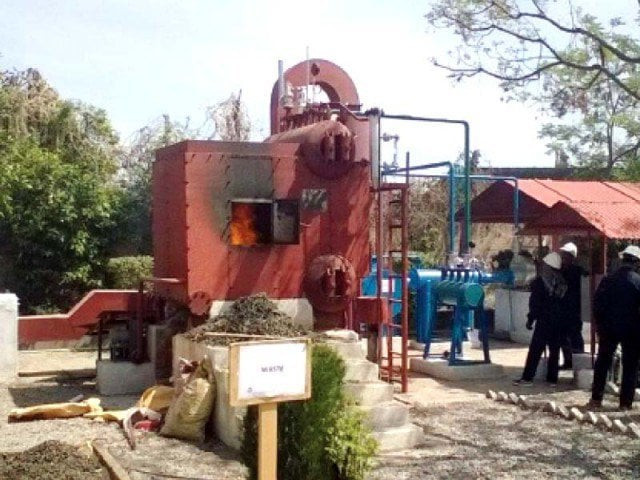Power from garbage
An engineering professor appears to have constructed a 20MW power plant that runs on municipal solid waste in Peshawar

The newly-installed boiler in Hayatabad. PHOTO: BASEER QALANDAR/EXPRESS
The federal government is comfortable spending well over Rs250 billion on inefficient energy subsidies each year, most of which go to wealthier citizens who do not need the subsidy, while spending a pittance on the kind of investments that could solve the crisis. Investing in cheaper sources of energy is one way to mitigate the crisis, but an even longer-term vision would be the sort of project that has been set up in Peshawar: investing in alternative sources of energy and making them commercially viable. Municipal solid waste is a relatively well-developed energy source, with companies around the world engaged in generating electricity by burning garbage. There is no reason why entrepreneurial engineers, backed by government support and even private sector funding, cannot replicate that model. The K-P government has taken a positive step. It should exhibit the foresight to carry this initiative to fruition.
Published in The Express Tribune, April 5th, 2015.
Like Opinion & Editorial on Facebook, follow @ETOpEd on Twitter to receive all updates on all our daily pieces.














COMMENTS
Comments are moderated and generally will be posted if they are on-topic and not abusive.
For more information, please see our Comments FAQ